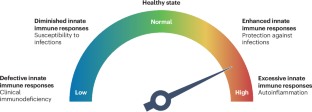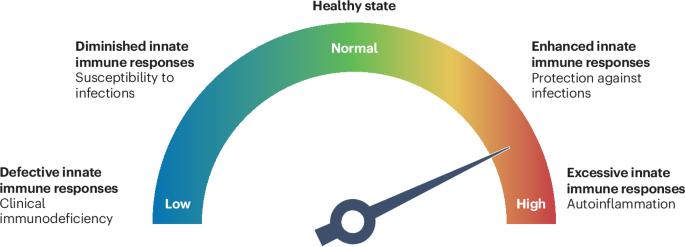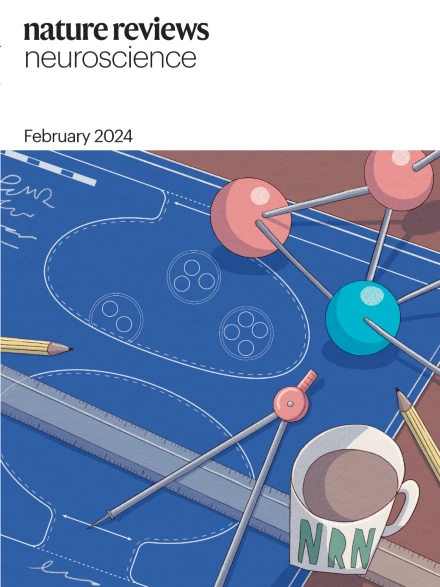The past 25 years in paediatric rheumatology: insights from monogenic diseases
IF 29.4
1区 医学
Q1 RHEUMATOLOGY
引用次数: 0
Abstract
The past 25 years have seen major novel developments in the field of paediatric rheumatology. The concept of autoinflammation was introduced to this field, and medicine more broadly, with studies of familial Mediterranean fever, the most common autoinflammatory disease globally. New data on the positive evolutionary selection of familial Mediterranean fever-associated genetic variants might be pertinent to mild gain-of-function variants reported in other disease-associated genes. Genetic studies have unveiled the complexity of human heritability to inflammation and flourishing data from rare monogenic disorders have contributed to a better understanding of general disease mechanisms in paediatric rheumatic conditions. Beyond genomics, the application of other ‘omics’ technologies, including transcriptomics, proteomics and metabolomics, has generated an enormous dataset that can be applied to the development of new therapies and in the practice of precision medicine. Novel biomarkers for monitoring disease activity and progression have also emerged. A surge in the development of targeted biologic therapies has led to durable remission and improved prognosis for many diseases that in the past caused major complications. Last but not least, the COVID-19 pandemic has affected paediatric rheumatology practice and has sparked new investigations into the link between viral infections and unregulated inflammatory responses in children. Paediatric rheumatology has seen many notable developments in the past 25 years, including the introduction of the concept of autoinflammation and a greater understanding of the genetics and pathogenesis of inflammatory diseases. In this Perspective, Ozen and Aksentijevich discuss how these and other discoveries have transformed the field and herald improvements in patient care.


过去 25 年的儿科风湿病学:单基因疾病的启示
在过去的 25 年里,儿科风湿病学领域取得了重大的新进展。通过对全球最常见的自身炎症性疾病--家族性地中海热的研究,自身炎症的概念被引入了这一领域,也被引入了更广泛的医学领域。关于家族性地中海热相关基因变异的积极进化选择的新数据可能与其他疾病相关基因中报告的轻度功能增益变异有关。基因研究揭示了人类遗传性炎症的复杂性,来自罕见单基因疾病的大量数据有助于更好地了解儿科风湿病的一般疾病机制。除基因组学外,其他 "全息 "技术(包括转录组学、蛋白质组学和代谢组学)的应用也产生了庞大的数据集,这些数据集可用于开发新的疗法和精准医疗实践。用于监测疾病活动和进展的新型生物标记物也已出现。靶向生物疗法的迅猛发展使许多疾病得到了持久缓解,并改善了预后,而这些疾病在过去会引起严重的并发症。最后但并非最不重要的一点是,COVID-19 大流行影响了儿科风湿病学实践,并引发了对儿童病毒感染与不规则炎症反应之间联系的新研究。
本文章由计算机程序翻译,如有差异,请以英文原文为准。
求助全文
约1分钟内获得全文
求助全文
来源期刊

Nature Reviews Rheumatology
医学-风湿病学
CiteScore
29.90
自引率
0.90%
发文量
137
审稿时长
6-12 weeks
期刊介绍:
Nature Reviews Rheumatology is part of the Nature Reviews portfolio of journals. The journal scope covers the entire spectrum of rheumatology research. We ensure that our articles are accessible to the widest possible audience.
 求助内容:
求助内容: 应助结果提醒方式:
应助结果提醒方式:


